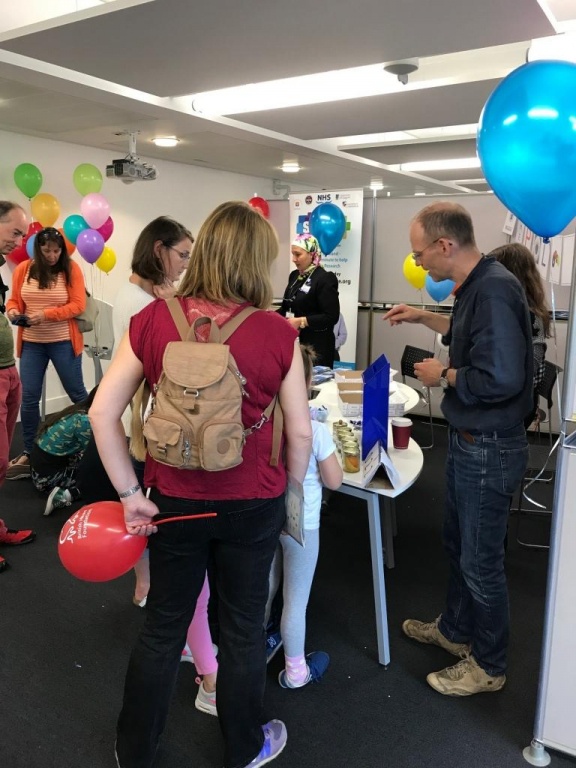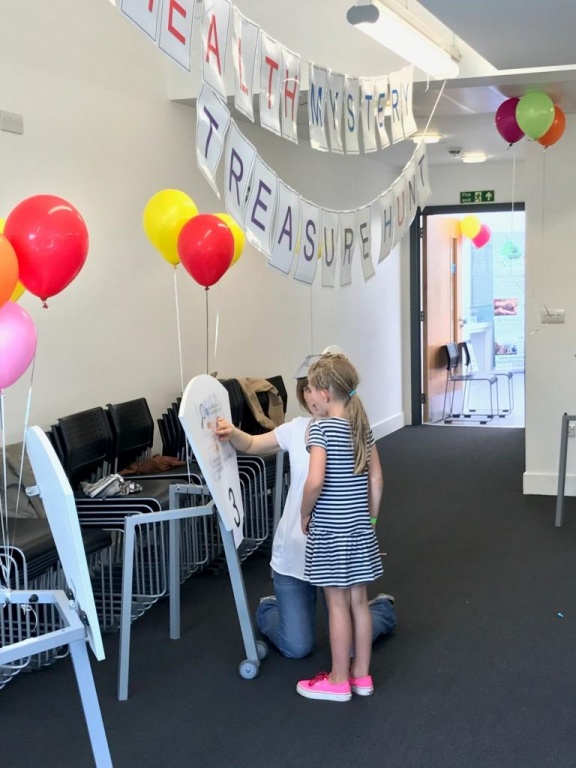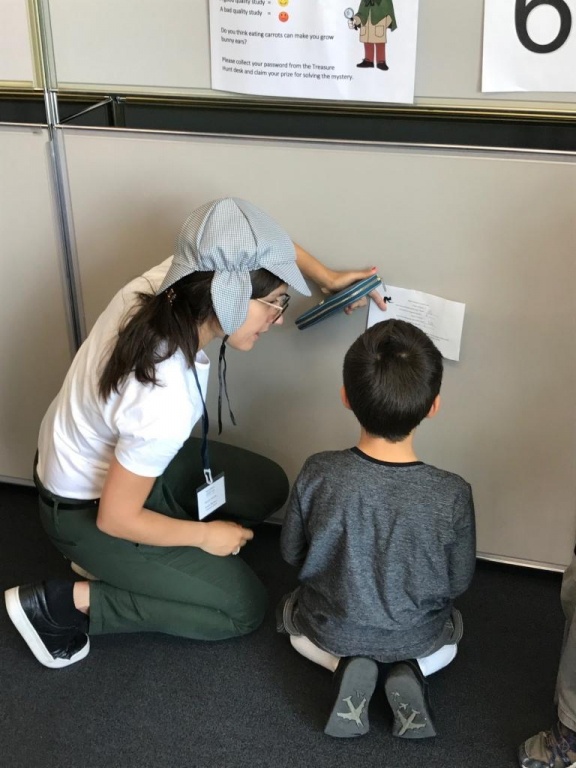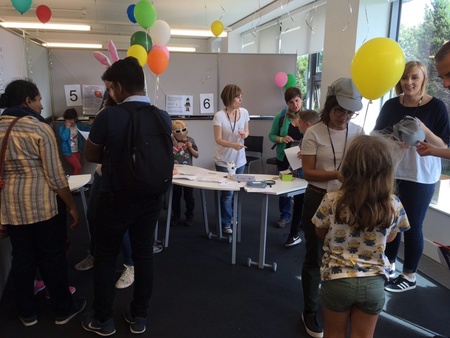Our Health Services Research Unit's public engagement group were delighted to participate in this year's TechFest. TechFest is Aberdeen and the North-East of Scotland's annual festival of Science, Technology, Engineering and Mathematics (STEM) - and is widely acknowledged as a major event in the annual calendar of the region.
This was our group’s first experience of participating as presenters at the TechFest Activity weekend, which took place on over the last weekend in August at the Robert Gordon University’s Garthdee campus.
Our team of public engagers set the bar high with two activities showcasing the research activities of HSRU.

The first activity, entitled ‘To randomise or not to randomise…’ was a shortened version of an activity that we ran earlier in the year at May Festival. We invited volunteers to select a coloured ball from a container that obscures options to show random, blinded allocation (colour representing ‘treatment arm’), which determined the flavour of sweet they received. This allowed us to demonstrate the concept of ‘randomisation’ to treatment as would occur in a clinical trial. Randomisation is a methodology first introduced by clinical trials pioneer James Lind in 1747 to find a cure for sailors suffering with scurvy. The method has been adapted since and adopted as ‘gold standard’ for clinical trials of drugs, surgeries and other therapies. It is an essential component that allows conclusions to be drawn about direct causation of outcomes. We use randomisation across our work at the Unit and it was brilliant to share this method with others in such a simple and engaging way!

In addition to this, we also ran a ‘Health Mystery Tour’ which transformed volunteers into little Sherlocks for the afternoon. This event was designed with a younger audience in mind, and took the form of a treasure hunt. Volunteers were given clues on the key features of how to differentiate a good quality study from a poor quality one. These clues were presented in cartoon form, and explained to volunteers that; in general, studies involving more participants are more reliable than those involving fewer participants; and that studies that include a comparison group are usually more reliable than those where participants all get the intervention and no comparison group is included.

Our research question here was ‘Does eating lots of carrots lead to children sprouting bunny ears?’ Once our little Sherlocks had collected their cartoon clues, they were then presented with 2 newspaper articles from fictitious publications such as ‘The Daily Veg’ that presented the results of studies looking at how carrot consumption may or may not have caused children to grow bunny ears. One of the newspaper articles reported a poor quality study (fewer participants and no comparison group), and one a good quality study (more participants and a comparison group).
Once volunteers had critiqued the newspaper articles they were asked whether eating lots of carrots would cause them to grow bunny ears. Spoiler alert – you can eat as many carrots as you like and you still won’t be sprouting floppy bunny ears any time soon! If volunteers gave the correct answer to our question, they were rewarded with mini magnifying glasses so that they could continue their critical thinking after our activity, a balloon, and a Sense About Science ‘Ask for Evidence’ badge.
HSRU PhD student Heidi Gardner, who led the randomisation activity, said: “TechFest’s Activity Weekend was a great way to showcase the work we do to a new audience, and we had a brilliant time engaging in conversations with members of the public about the work we do. The Health Mystery Tour was a new activity for us and the team worked hard on it – the hard work definitely paid off! We taught children how to think critically about research in an entertaining way, and many walked away asking their parents for carrots for dinner so they could double check our study results.”
The group would like to acknowledge financial support received from the University’s Public Engagement with Research Unit’s Enabling Fund following a successful application/award.


